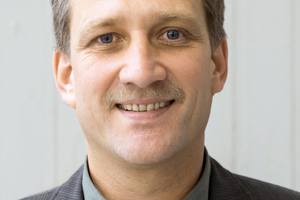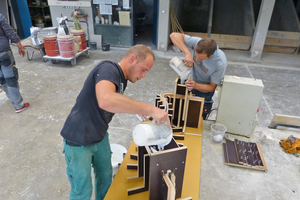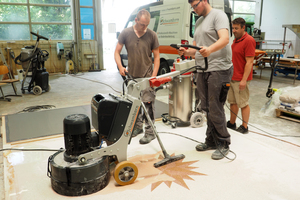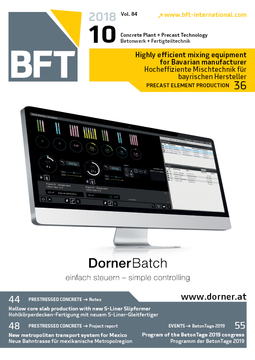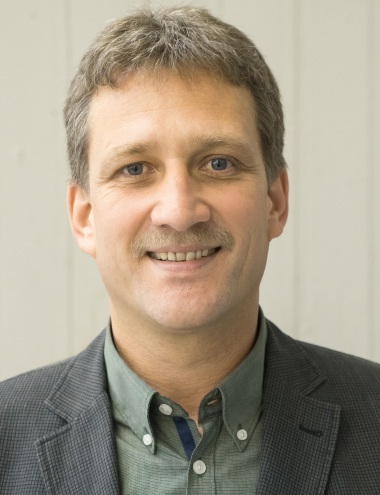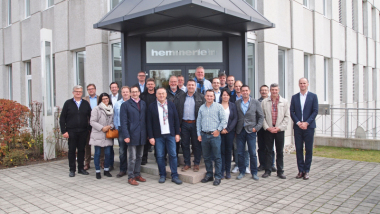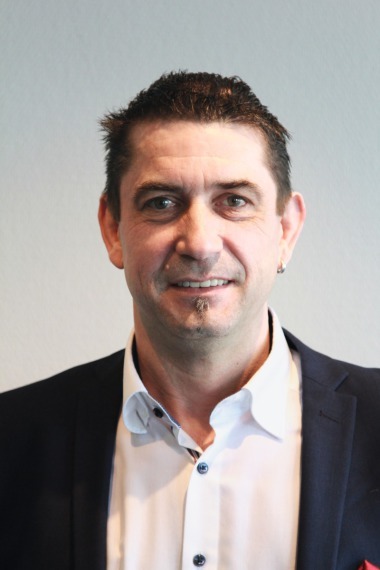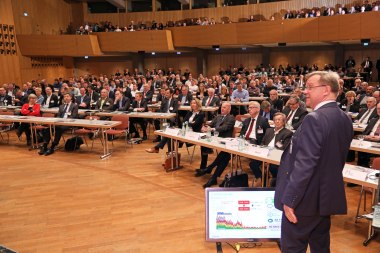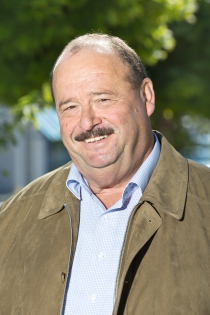Further training to master craftsman: „The demand is huge“
Well-trained personnel that is also in the position to take over management tasks is in demand as never before. The further training program to become a master craftsman that will start again in 2019 at the Ferdinand-von-Steinbeis School in Ulm provides the respective qualification. In a conversation with the editorial staff of the BFT International trade journal, the director of studies, Steffen Klink, explains what contents are taught, what are the costs of the further training course and why it is worthwhile for the graduates.
BFT International: Also next year, in 2019, Ferdinand-von-Steinbeis School in Ulm will again offer further training courses to become a master craftsman in the concrete block and terrazzo manufacturing trade as well as master craftsman in the concrete block industry. Why do skilled workers benefit from the master craftsman course?
Steffen Klink: Form the perspective of a skilled worker it is a major step forward both in terms of the activities carried out in the daily routine and the better earning opportunities. An ambitious and good craftsman, sooner or later, will strive for doing more demanding work that is involved with more responsibility. At this point, the master craftsman course comes into play for everybody who does not want to or is not in the position to study because a master craftsman can count to the „middle management“ of a company. He assumes responsibility for operational procedures and leads workers; and the remuneration will be higher accordingly.
BFT International: Will all your graduates enjoy the advantages described?
Klink: Of course, a new master craftsman needs to face higher demands, he must want and must cope with them. Contacts to former graduates of the master craftsman school show that the master craftsmen trained in Ulm occupy leading positions in precast concrete plants, whether in the production, in process planning or in cost estimation. The fresh graduates, of course, lack of the practical experience in the activities and the position of a master craftsman. In this regard, the companies are required to provide them with the support needed and to grant a training period. Moreover, every master craftsman is free to start his own business.
BFT International: Who can attend the courses and obtain the title of a master craftsman?
Klink: Everybody, who holds a skilled worker‘s certificate (Fach-arbeiterbrief) in a trade and can prove at least one year of practical work or a correspondingly long period of practical work is admitted to the examination for the industrial master craftsman in the precast concrete industry. Admission to the examination for the master craftsman in the concrete block and terrazzo manufacturing industry is granted to everybody who holds a certificate of apprenticeship (Gesellenbrief) in this trade, another certificate of apprenticeship and has two years of practical work experience or who has worked five years in this trade. In particular cases a decision is up to the responsible chambers or the boards of examinations.
People interested from European neighboring countries can also register for the master craftsman course and take the master craftsman‘s examination if the admission requirements are fulfilled.
BFT International: How does the training to the master craftsman take place?
Klink: The master craftsman course takes place in Ulm from January until approximately mid-December and complies with the annual school plan of the German Federal State of Baden-Württemberg. The master craftsman course comprises 38 school weeks in total, including the master craftsman‘s examination. During holidays in the state of Baden-Württemberg the students also have time off. Except for the last week of the summer holidays when the students already start to make their masterpieces.
The weekly classes amount to about 38 lessons. About 20 hours account for the part of teaching technical theory, 9 hours for the par of business management and law, and 9 hours account for the practice day at the shop floor.
BFT International: Which qualifications and competencies do you teach in the training course?
Klink: During the master craftsman course, along with teaching relevant technical subjects also current developments are discussed in the field of concrete technology, in industrial production of precast concrete elements and the up-to-date production of cast-stone products. The master craftsmen to-be will learn that the field of concrete technology and production techniques constantly see new developments, thus requiring permanent advanced training.
Apart from concrete technology, a specific focus lies on the design of concrete surfaces using various methods and technologies. The master craftsmen to-be shall internalize that the technical feasibility and the business impact also have to be considered for concrete products and their production processes.
The master craftsman course puts great emphasis on the basic values and virtues important for the master craftsmen, including the masterly behavior, an active, independent involvement and working in a team.
BFT International: What are the costs of the master craftsman course?
Klink: As we are a public school, the master craftsman course in Ulm does not cost very much, with fees arising of only € 526.00 per term. This includes school fees and the costs of learning materials. The examination fees for an industrial master craftsman (Industriemeister) amount to about € 800.00 and for a master craftsman (Handwerksmeister) to approx. € 1,200.00. In addition, there is the accommodation in Ulm, either in a private room or at the adjacent boarding school. At present, accommodation at the boarding school with full board costs € 455.00 per months which, however, has to be paid for only ten months.
BFT International: Is it possible to apply for financial support for the master craftsman course?
Klink: Most of our graduates are supported by the so-called master BAföG. This includes course and examination fees amounting to € 15,000.00, apart from the living expenses of up to € 768.00 per month. About 40 % of the benefits are allowances, the remaining amount is granted as interest-free loan, which is again reduced by 40 % if the applicant passes the master craftsman‘s examination. Moreover, there is the Förderverein der Bundesfachschule für Betonwerker (Association of the Friends of the Federal Vocational School for Skilled Concrete Workers). which also grants financial support to the course participants. The association partly funds food, visits at trade fairs and conferences, factory tours, and much more.
BFT International: How important is it for our industry that employees in the factories are prepared to assume responsibility and being trained to a master craftsman?
Klink: As, in particular, the construction sector, to which the precast industry and the building trade belong, extremely suffers from a shortage of recruits, it is essential to win employees and to provide further training accordingly. This starts with the skilled workers who should be promoted and motivated in the factory accordingly so that they are prepared to start a further training course to a master craftsman later.
Many companies have recognized this and sponsor skilled workers interested in further training during the master craftsman course and thus retaining them to the company at least for some time.
BFT International: This means that the graduates of the further training courses to a master craftsman are really needed and are searched for in our industry and that the career prospects are good?
Klink: Who does not want to or cannot stay at his previous company after the master craftsman course and is probably still connected to a place, has all chances to find a job. The demand is huge. This is also represented by reams of requests for trained master craftsmen, which we receive. It is obvious from the feedback of former graduates that they work in different fields, whether in the production of precast concrete elements, the manufacture of cast stones, in the field service of suppliers to the industry or in their own company. Certainly, we have never heard of an unemployed master craftsman.

